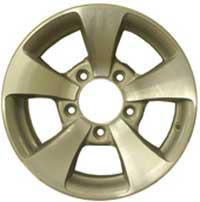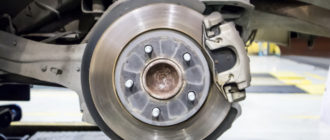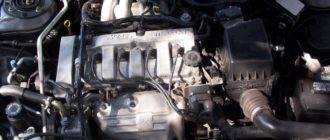Coolant leaks are one of the most common issues that car owners face, and they can cause major damage to the engine if left untreated. Leaks can be caused by a number of factors, including a faulty radiator, water pump, or head gasket. In order to prevent serious damage and costly repairs, it is important to be able to identify the symptoms of a coolant leak and the potential causes.
In this article, we will outline the top 5 symptoms of a coolant leak and discuss the common causes. By understanding these issues, car owners can take the necessary steps to address the problem and keep their vehicle running smoothly. Whether you are experiencing overheating, low coolant levels, or other signs of a coolant leak, this guide will help you pinpoint the cause and find a solution. So, let’s dive in and learn more about the top 5 symptoms and causes of coolant leaks.

source: https://completecar.ca/maintenance/coolant-leaks/
Low Coolant Level
Low coolant level is one of the most common symptoms of a coolant leak. Coolant, also known as antifreeze, is responsible for regulating engine temperature and preventing it from overheating. When the coolant level in your vehicle is low, it can lead to engine damage and decreased performance.
The most common cause of a low coolant level is a leak in the cooling system. This leak can occur in several places, including the radiator, hoses, heater core, and head gasket. Another cause could be a faulty coolant reservoir, which can cause the coolant level to drop below the optimal level.
If you notice that the coolant level in your vehicle is low, it’s important to address the issue as soon as possible. Ignoring it can lead to serious engine damage and costly repairs. It’s best to take your vehicle to a trusted mechanic to diagnose and repair any issues with the cooling system.
- Top 5 Symptoms and Causes of Coolant Leaks:
- Low Coolant Level
- Overheating Engine
- Sweet Smell in the Cabin
- Visible Coolant Leak
- White Exhaust Smoke
By identifying these symptoms and causes of coolant leaks, you can catch and address any issues with your vehicle’s cooling system before they turn into major problems. Regular maintenance checks and inspections can also help prevent coolant leaks from occurring in the first place.
Top 5 Symptoms and Causes of Coolant Leaks Leading to Engine Overheating
An overheating engine is a common problem faced by many vehicle owners. One of the common causes of engine overheating is a coolant leak. It’s important to identify the symptoms and causes of coolant leaks to avoid engine damage and costly repairs.
Symptoms of Coolant Leaks:
- Steam or smoke coming from under the hood
- A strong sweet smell in the cockpit or around the engine
- The coolant level is low, and the engine is overheating
- The engine temperature gauge is showing that the engine is running hotter than normal
- Coolant puddles under the car
Causes of Coolant Leaks:
There are different causes of coolant leaks, and some of the most common ones include:
- Cracked or damaged radiator hoses or connections
- A leaking radiator or water pump
- A blown head gasket
- A cracked engine block
- A damaged heater core
It’s important to get your vehicle checked by a qualified mechanic at the first sign of coolant leaks to avoid engine overheating and potential damage. Regular vehicle maintenance and inspections can also help prevent coolant leaks and engine damage.

source: https://aamcoutah.com/common-causes-of-coolant-leaks/
White Exhaust Smoke
One of the top 5 symptoms of coolant leaks in a vehicle is white exhaust smoke. When a vehicle’s coolant leaks into the engine, it can cause the engine to overheat, which produces the white exhaust smoke. This symptom is a clear indication that the engine is functioning abnormally and should be inspected by a professional mechanic immediately.
The cause of the white exhaust smoke can vary, but it is typically the result of a faulty cylinder head gasket or a cracked engine block. The head gasket is responsible for sealing the engine cylinders, and when it fails, it allows coolant to leak into the engine. A cracked engine block, on the other hand, is a more serious issue that may require a complete engine replacement.
In addition to white exhaust smoke, other symptoms of coolant leaks include engine overheating, low coolant levels, sweet-smelling exhaust, and a milky white substance on the oil cap or dipstick. It’s important to address any potential coolant leaks as soon as possible to avoid further damage to the engine and potential safety hazards on the road.
- Coolant Leaks can cause:
- White exhaust smoke
- Engine overheating
- Low coolant levels
- Sweet-smelling exhaust
- Milky white substance on the oil cap or dipstick
- The causes of Coolant Leaks are:
- Faulty cylinder head gasket
- Cracked engine block
- Damaged radiator
- Leaking heater core
- Worn out water pump
If you suspect a coolant leak in your vehicle, it’s important to have it inspected by a professional mechanic right away. Ignoring the problem can lead to serious damage to your engine and other components, resulting in costly repairs or even a complete engine replacement.
Top 5 Symptoms and Causes of Coolant Leaks: Identifying Common Signs of Trouble
One common sign of trouble with your car’s cooling system is a sweet smell inside the car. This smell can be caused by a coolant leak, which occurs when the liquid that helps regulate your engine’s temperature is escaping from the system. Coolant leaks are often associated with high engine temperatures, as the fluid is responsible for keeping the engine from overheating. If you notice a sweet smell inside your car, it is important to get your vehicle checked by a qualified mechanic as soon as possible.
In addition to a sweet smell inside the car, there are several other symptoms that may indicate a coolant leak. These may include engine overheating, low coolant levels in the reservoir, a visible puddle of coolant under the car, and steam coming from under the hood. These symptoms can be caused by a variety of issues, including a cracked radiator, a broken water pump, or a damaged hose.
If you suspect that you have a coolant leak, it is important to get your car checked promptly. Ignoring the problem can lead to more serious issues down the road, including engine damage and costly repairs. Your mechanic can help identify the source of the leak and make any necessary repairs to get your car back to its proper working condition.
- One common cause of coolant leaks is a damaged radiator. The radiator is responsible for cooling the engine, and if it is damaged or cracked, it can lead to a loss of coolant.
- A broken water pump can also cause coolant leaks. The water pump is responsible for circulating coolant through the engine, and if it is damaged, it may not be able to effectively circulate the fluid, leading to leaks.
- A damaged or worn hose can also cause coolant leaks. Hoses can wear out over time, leading to cracks or other damage that can allow coolant to escape from the system.
- A corroded or damaged reservoir can also lead to coolant leaks. The reservoir is responsible for storing excess coolant, and if it is damaged or corroded, it may not be able to hold the fluid properly.
- Finally, a damaged head gasket can also cause coolant leaks. The head gasket is responsible for sealing the engine block and cylinder head, and if it is damaged, it can allow coolant to escape from the system.
If you notice any of these symptoms, or if you detect a sweet smell inside the car, it is important to get your car checked by a qualified mechanic. With prompt attention and the right repairs, you can ensure that your car stays in top working order and avoid costly repairs down the road.
Symptoms and Causes of Coolant Leaks
Coolant leaks can cause severe damage to your car’s engine if left untreated. One symptom of a coolant leak is a pool of green liquid underneath the car. This can be the result of a leaking radiator, a damaged hose, or a failing water pump.
If you notice your car is running hotter than usual, this could also be a sign of a coolant leak. You may also see steam coming from under the hood, or hear a hissing sound when the car is running. Coolant leaks can also cause a sweet smell to come from the engine.
What causes these coolant leaks? Corrosion is a common culprit, as it can cause damage to the radiator, hoses, and other components of the cooling system. Over time, wear and tear can also cause cracks and holes to form in the radiator or hoses. If the water pump is failing, it can cause coolant to leak from the weep hole.
- To prevent coolant leaks, it’s essential to maintain your car’s cooling system. Regularly check the coolant levels and inspect the system for any signs of wear and tear. Replace any damaged parts as soon as possible to prevent further damage to the engine.
- Be sure to use the recommended coolant for your car, as using the wrong type of coolant can cause damage to the cooling system. Keep the radiator and other components clean to prevent corrosion from building up.
- If you suspect a coolant leak, don’t ignore it. Schedule an appointment with a mechanic to diagnose and repair the issue before it causes more significant problems.
By keeping up with regular maintenance and addressing coolant leaks promptly, you can keep your car’s engine running smoothly and prevent costly repairs down the road.
The common causes of coolant leaks are a damaged water pump, a blown head gasket, a cracked engine block or cylinder head, a damaged radiator or hoses, and a faulty radiator cap.
You may notice that your car is overheating or the temperature gauge is higher than usual, the coolant level in the overflow tank is low, you may see steam or smoke coming from the engine, there may be a sweet smell from the engine or a puddle of coolant on the ground.
Yes, a coolant leak can cause damage to the engine because it can lead to overheating, which can cause warping or cracking of the cylinders, head gasket failure, and other serious engine problems.
You can prevent coolant leaks by maintaining your car's cooling system, checking the coolant level regularly, replacing hoses and belts if they look worn or cracked, and having your car inspected by a professional if you notice any signs of a coolant leak.
No, you should not drive with a coolant leak because it can cause overheating and damage to the engine. If you notice signs of a coolant leak, you should have your car inspected and repaired as soon as possible.
The cost to repair a coolant leak can vary depending on the cause of the leak and the extent of the damage. The cost can range from $100 for a simple repair to several thousand dollars for a complex repair, such as a blown head gasket or cracked engine block.
If you notice a coolant leak, you should stop driving your car immediately and have it inspected by a professional mechanic. Continuing to drive with a coolant leak can cause serious damage to the engine and may result in costly repairs.
While stop leak products can temporarily fix a coolant leak, they are not a permanent solution and can cause damage to the cooling system in the long run. It is always best to have the coolant leak properly repaired by a professional mechanic.






